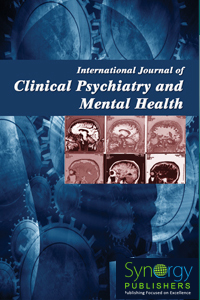
Telepsychiatry: Current Outcomes and Future Directions – Pages 46-50
Muaid Ithman1, Arpit Aggarwal1 and Hema Madhuri Mekala2
1Department of Psychiatry, University of Missouri-Columbia, USA; 2Griffin Memorial Hospital, Norman Ok, USA
DOI: https://doi.org/10.12970/2310-8231.2017.05.07
Download PDFAbstract: Telepsychiatry is an evolving field in the treatment of mental illness. Although it is used since 1950, its application is widely expanded in the past one decade. Telepsychiatry is defined as the use of technology to communicate with the people and provide psychiatry services from a distance. It requires a collaborative and supportive team consisting of patients, psychiatrists, referring physicians, nurses, families, and health care facilities. Telepsychiatry is very feasible and is applicable to a wide range of patient population having diverse cultural backgrounds. It can also be used in different clinical settings and is proven to be effective in reducing disease severity in several disorders like anxiety, attention deficit hyperactive disorder (ADHD), bipolar disorder, depression, post-traumatic stress disorder (PTSD), schizophrenia, and psychosis. Telepsychiatry is effective both clinically and academically. Clinically, it is used for diagnosing and managing the patient, conducting neuropsychological testing, and providing psychotherapy. Academically telepsychiatry can be used for education, training, and research purposes. Although it is very effective in many ways, few challenges in this field include training and recruiting physicians who can provide care using such services, access to patients, and continuously update health care facilities with the recent advancements in the information and communication technology. Telepsychiatry is mainly helpful to decrease the gap in delivering psychiatric care to people in rural and/or underserved areas. So, more insight should be provided to patients and physicians about the advantages of using telepsychiatry services. In this review, we discussed the challenges, different treatment outcomes, effectiveness, and future directions of telepsychiatry.
Keywords: Telepsychiatry, videoconferencing, Geriatric, Forensic, Ethnicity.
Read more
